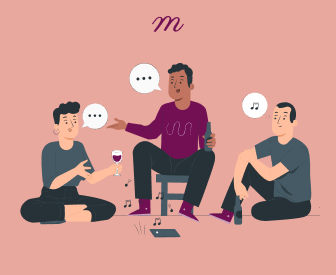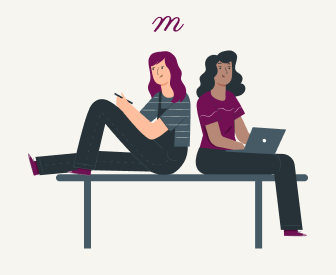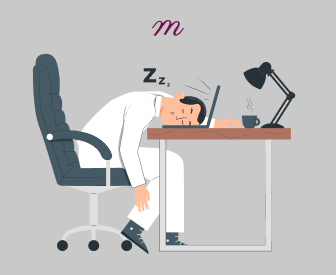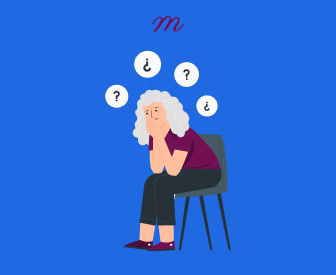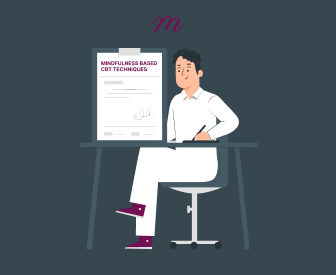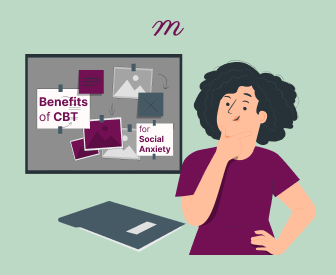Have your progress notes written for you automatically
Substance abuse group activities are essential to the recovery process, providing a supportive, structured space for individuals to connect with others who have faced similar challenges. Research shows that group therapy can be as effective as individual treatment for substance use disorders (Substance Abuse and Mental Health Services Administration, 2005). Support groups reduce isolation, increase self-efficacy, and promote accountability, all essential in sustaining long-term sobriety (Substance Abuse and Mental Health Services Administration, 2005).
Substance Abuse Group Activities
Fun, engaging activities help build connections, reduce stigma, and support personal growth, making them valuable tools for long-term recovery. The following group activities will create camaraderie, improve self-awareness, and inspire healthier habits. These activities are appropriate for diverse group sizes and settings, from formal programs to casual gatherings.
- Recovery Bingo: Strengthen Peer Connections. Recovery Bingo is a twist on the classic bingo game that encourages participants to share personal experiences and accomplishments related to recovery. This lighthearted activity encourages openness without pressure, making it a great icebreaker for new groups.
Facilitator Instructions: Create bingo cards or use a template with prompts such as “tried a new hobby,” “shared in the group,” or “practiced favorite relaxation technique.” Participants mark off squares when they meet someone who has done each prompt.
- Goal Setting Vision Boards: Visualize Recovery. Vision boards allow participants to visualize their goals and aspirations by creating a collage of images, words, and symbols representing their journey toward a fulfilling, substance-free life. Play calming music to set a relaxed atmosphere, and offer support with prompts like, “What inspires you in recovery?”
Facilitator Instructions: Provide magazines, stickers, multicolored paper, scissors, tape, glue, and poster boards. Encourage participants to cut out images or words that resonate with their goals, such as “health,” “return to school,” or “serenity.”
- Slogan Slog: Reinforce Positive Mantras. This activity focuses on the power of positive affirmations and recovery slogans, such as “one day at a time” or “progress, not perfection.” Add personal development to this activity by inviting group members to create their own slogans, encouraging individuality.
Facilitator Instructions: Write various recovery slogans on slips of paper and place them in a bowl. Participants draw a slip and discuss how the slogan resonates with them or helps their recovery journey.
- Guided Journaling Circle: Process Emotions Together. Journaling helps people process emotions and track progress (Pennebaker & Seagal, 1999). Guided journaling in a group setting lets participants share and support each other through self-reflection. This can be a recurring activity where participants revisit previous journal entries to observe their growth.
Facilitator Instructions: Provide journals and prompts like, “What does sobriety mean to you?” or “What is one habit you are proud of breaking?” After writing, participants share insights they feel comfortable discussing.
- Role-Playing Scenario: Build Real-Life Skills. Practicing scenarios in a safe, controlled environment helps participants build skills they can use in real-world settings, like managing stress at work. Give participants options to participate directly or observe, depending on comfort levels. This flexibility respects personal boundaries.
Facilitator Instructions: Set up role-play scenarios relevant to recovery, such as “saying no to using” or “responding to a stressful family gathering.” Group members act out responses and receive feedback.
- Recovery Jeopardy: Make Learning Fun. A quiz game modeled after Jeopardy helps reinforce knowledge about addiction, recovery, coping mechanisms, and related health topics. Divide the group into small teams to encourage teamwork. Adding an element of friendly competition boosts engagement and teamwork.
Facilitator Instructions: Create categories like “Triggers,” “Healthy Habits,” and “Famous Sober Figures.” Group members take turns choosing questions ranging from basic facts to open-ended discussions.
- Relapse Prevention Scavenger Hunt: Learn Skills Through Movement. This interactive activity reinforces relapse prevention strategies by encouraging participants to find objects or answer questions about coping mechanisms. It's ideal for outdoor or larger spaces where participants can move around. It’s a great way to get people physically active while reinforcing recovery skills.
Facilitator Instructions: Set up clues or items representing different coping skills, such as a stress ball to represent relaxation or a picture of a candlelit bubble bath to symbolize self-care. As participants locate each item or answer each question, they discuss how it relates to their recovery.
- Letter to Future Self: Visualizing Long-Term Success. Writing a letter to one’s future self helps participants visualize their future in recovery, reinforcing their commitment to sobriety. Offer prompts such as “What advice would you give your future self?” or “What do you hope will be different a year from now (or five years from now)?” This makes the activity less overwhelming and helps participants focus on positive growth.
Facilitator Instructions: Suggest that participants include their dreams, goals, and what they want to remember about their recovery journey. Optionally, seal the letters and give them back in a future session.
- Recovery Board Game: Bond Over Fun Challenges. Classic board games with a recovery twist can promote team bonding and provide opportunities to discuss real-life situations in a relaxed, playful way. Games like these can bring fun to the group while reinforcing recovery concepts. Use well-known games or create a simple one designed for your group’s needs. Encourage everyone to relax and enjoy the experience.
Facilitator Instructions: Use or create board games where players encounter recovery-related scenarios. For example, players could land on spaces that prompt them to discuss a specific trigger and how they would handle it or share a healthy coping skill.
- Expressive Art Session: Explore Emotions Through Creativity. Art provides a nonverbal outlet for expressing feelings, perfect for group members who may struggle to articulate how they feel. This activity works best with varied supplies to allow individual creativity. Incorporate prompts like “What does strength look like to you?” for guidance.
Facilitator Instructions: Set up art supplies such as paints, markers, or clay, and invite participants to create something that represents their current emotional state or recovery goals. Afterward, they can explain their artwork to the group if they choose.
Challenges and Ethical Considerations
Substance abuse support groups must address unique ethical considerations and challenges to ensure a safe, supportive environment for participants. Below are issues facilitators should consider during therapeutic group activities.
Addressing Resistance and Ambivalence. Some group members may be ambivalent about participating in activities because they struggle with commitment to recovery. Facilitators can create a nonjudgmental space where participants feel comfortable discussing doubts, allowing for open expression while encouraging self-reflection. Balance empathy with gentle guidance to increase participants’ comfort levels.
Confidentiality and Privacy Concerns. Participants need assurance that their personal stories will remain within the group. Facilitators should establish clear confidentiality guidelines and clarify limits.
Dual Relationships and Boundaries. Maintaining professional boundaries is crucial in group activities to avoid conflicts of interest, power imbalances, or favoritism. Clear boundaries help maintain trust and equity within the group.
Managing Group Dynamics. Facilitators should respectfully address disruptive behaviors or dominance during group activities, using assertive communication and clear guidelines. Conflict, if managed effectively, can lead to more profound understanding and resilience within the group.
Trauma Triggers and Crisis Management. Many participants in substance abuse groups may have trauma histories that can be triggered during activities. Facilitators should apply trauma-informed practices and be prepared to manage crises. Ensuring participants’ emotional safety and providing resources for immediate support are essential components of group activities.
Ongoing Assessment and Evaluation. Regular assessment of group progress and the effectiveness of group activities is essential for positive outcomes. Facilitators should implement check-ins and feedback mechanisms to evaluate individual growth and group dynamics. Adjusting the group's focus based on these evaluations improves engagement and supports participants' recovery journeys.
Conclusion
Substance abuse recovery is a challenging journey that benefits from a strong foundation of determination, support, and connection. These ten group activities provide structured, practical opportunities for participants to develop coping skills, build community, and express themselves meaningfully. By including fun, engaging activities in group sessions, facilitators help participants experience recovery as a rewarding process that expands resilience and supports personal growth. When facilitators create a safe, healing environment, individuals are more likely to stay motivated, connected, and committed to their journey toward a substance-free life.
References
Pennebaker, J. W., & Seagal, J. D. (1999). Forming a story: The health benefits of narrative. Journal of Clinical Psychology, 55(10), 1243-1254.
Substance Abuse and Mental Health Services Administration. (2005). Substance abuse treatment: Group therapy (Treatment Improvement Protocol (TIP) Series, No. 41). Substance Abuse and Mental Health Services Administration.


